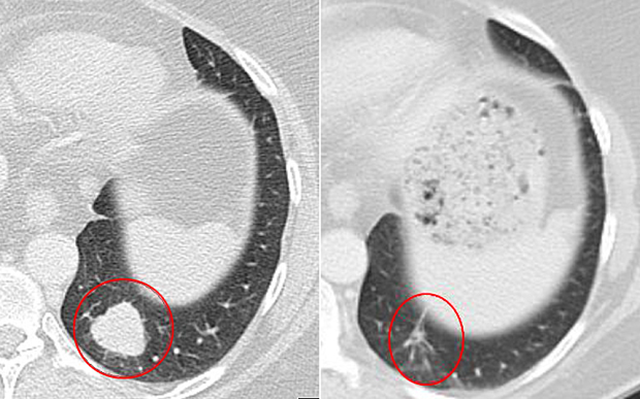
Drugs which are already available on the NHS may help Alzheimer's patients, scientists believe Photo: Alamy
Cancer drugs already available on the NHS may help reverse Alzheimer’s disease by boosting the immune system, scientists believe.
A range of immunotherapy treatments, which harness the body’s own defences to ward off tumours are already revolutionising cancer care.
But now scientists believe that a similar immune boost could help people with dementia.
The drugs, known as PD-1 blockers, effectively prevent the immune system from switching off, allowing a continuous cascade of soldier cells to fight disease and clear out damage in the body.
In the case of Alzheimer’s disease sticky amyloid plaques build up which stop brain cells communicating with each other. But when mice, engineered to have Alzheimer’s symptoms, were given injections of the drug the amount of amyloid in their brains halved, and the animals were able to complete a maze task in the same time as control mice.
Last year the first PD-1 blocker drug Keytruda was approved for use on the NHS by the National Institute for Health and Care Excellence so it is already known to be a safe treatment.
Lead author Prof Michal Schwartz of the Weizmann Institute of Science, Rehovot, Israel, said that in Alzheimer’s a weakened immune system could be preventing the body from repairing itself.
"We are extremely excited about our new study, we believe it is a game changer both conceptually and therapeutically," she said.
"There is currently no cure or disease-modifying treatment for Alzheimer’s disease, and the prospect of using PD-1 blockers, may suggest short translation to the clinic.
"Notably, since such a immune therapy empowers the individual immune system to fight the disease, rather than directed against any single disease factor associated with Alzheimer’s disease, we believe that it targets multiple factors associated with the disease, and therefore will be applicable to the various forms of the disease, at different stages of progression, and potentially also to other neurodegenerative conditions."
In cancer the drugs work by disabling an “immune checkpoint” called the programmed cell death receptor 1, or PD-1, which stops immune cells from attacking tumours. These checkpoints are designed to prevent the immune system killing healthy cells but they are exploited by cancer to avoid detection.
The finding is particularly interesting because previously scientists believe that an over active immune system could be responsible for Alzheimer’s and were puzzled why anti-inflammatories did no see to have any impact in trials. The new research suggests the opposite could be true.
“This new research is interesting because it helps us understand the role of the immune system in Alzheimer’s disease,” said Dr Tara Spire-Hones, of the Centre for Cognitive and Neural Systems, at the University of Edinburgh.
“The brain’s immune system becomes over-activated in Alzheimer’s disease and there is a debate surrounding whether this activation is harmful, protective or a bit of both. Many scientists believe that calming down an overactive brain system will be a useful treatment for the disease. However drugs aimed at doing this have not had much success.
“This current research builds on the idea that boosting brain immunity will encourage the immune system’s natural potential to clear toxic substances."

Immonthrapy drugs have been shown to kill tumours completely
Around 850,000 people are believed to have dementia in Britain, a figures that is expected to rise to one million by 2025 and two million by 2050.
Dr Doug Brown, Director of Research and Development at Alzheimer’s Society said: “It’s clear that inflammation and the immune system play a highly important role in the development of Alzheimer’s disease, but just how that relationship works is incredibly complex and not fully understood.
“Repurposing drugs that already work for other conditions could provide us with a shortcut to new dementia treatments, and is a key aspect of our Drug Discovery programme.”
Dr Simon Ridley, Director of Research at Alzheimer’s Research UK, the UK’s leading dementia research charity, said: “This study in mice suggests that PD-1 blockers may warrant further investigation, but further work in the lab is still needed to take this early-stage research forward.
“The study looked at the effects of the drug at an advanced stage of amyloid build-up, however it is not yet known whether removing amyloid at this late stage will be helpful for memory and thinking in people.
"Ultimately, clinical trials in people will be crucial to determine whether PD-1 blockers can help fight Alzheimer’s.”
Other drugs are also showing promise for Alzheimer’s disease and experts have predicted that if current progress continues, there will be a treatment within the next decade.
Last year, pharmaceutical giant Eli Lilly said that early trials of the drug solanezumab had been shown to slow down the rate of cognitive decline for people with mild symptoms of Alzheimer’s disease. They are expected to release full results within the next two years.
Solanezumab is an antibody which binds to amyloid in its early soluble form allowing it to be cleared by the body before it can form dangerous plaques.
The research was published in the journal Nature Medicine.
